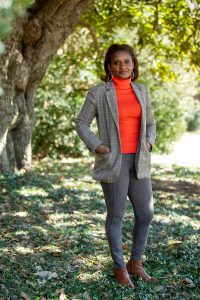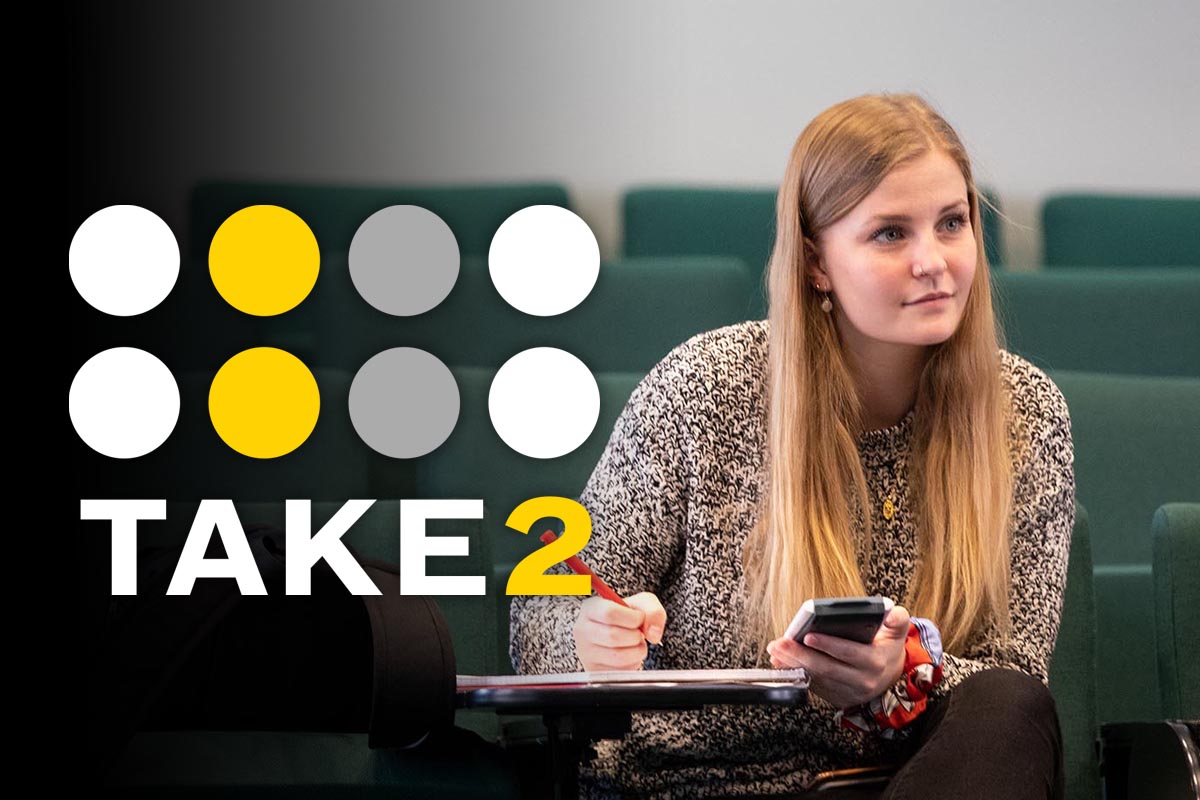New chief diversity officer Keesha Burke-Henderson brings experience, leadership, and commitment to students

Keesha Burke-Henderson started as Randolph’s chief diversity officer in February.
Before embarking on a career in diversity and inclusion, Keesha Burke-Henderson worked as a communication lecturer—with a focus on culture, race, and gender—for more than 15 years. She also spent a portion of her college years as a professional, traditional African dancer, which taught her the importance of a global worldview.
“I was living in a subculture that was rooted in African culture, history, and ways of living that imbued me with a natural flexibility in navigating spaces within dominant culture without losing my sense of self,” said Burke-Henderson, who started as Randolph’s chief diversity officer and director of the Office of Identity, Culture, and Inclusion, in February.
That cultural experience—and the others she has gained since—have helped guide her career.
“Her extensive background, leadership skills, and dedication and passion for positively shaping the student experience will make her a valued member of senior staff and the Randolph community,” said Randolph President Bradley W. Bateman. “I look forward to partnering with Keesha on the important work of providing a welcoming and inclusive learning, living, and working environment for our campus.”
Burke-Henderson came to Randolph from Mount Mercy University, where she led and designed a comprehensive culture, equity, and inclusion action plan, managed engagement efforts, curated cultural events centering on social justice practices, and was responsible for international student integration.
She’s also served as a gender, diversity, and inclusion consultant for One Woman Central, a nonprofit she began with the mission of supporting women of color and creating a sustainable pipeline of women leaders in high-demand roles.
“I understand the immigrant away from homeland, the woman, and the Black body in America, and can empathize with anyone seeking representation, human, and civil rights,” she said. “I am honored to be here at Randolph, and I hope to serve the community with all the zeal it deserves.”
Keep reading to learn more about Keesha Burke-Henderson and her goals for Randolph.
What are some steps or initiatives you’d like to implement?
Build relationships with and ensure that our Black and African-American students have a liaison. This was a tough year for us among all the other “normal” burdened years. I want to work across campus to build a coalition of sorts, a standing committee focused squarely on policy, practice, and engagement around culture, diversity, justice, and transformation. I will listen, learn, and evaluate. I have to develop a baseline assessment of where we really are in terms of the above mentioned.
Can you share any of the lessons you’re bringing to Randolph?
What I have learned is that this job is hard. It asks people to think about what they normally do and say. Sometimes, it challenges beliefs they have developed. What people believe, do, and say influences decisions, behaviors, and resource allocation. Those same people make up systems that affect other people. Groups that have traditionally been dominant in the United States do not like when their behaviors and beliefs are challenged. Thus, I now know complex solutions require a lot of simple actions—language shifts, recognizing the faulty race and caste system. Then you have to be intentional with planning, designing, and forecasting future impacts if change does not happen swiftly.
What is it like being a diversity officer in today’s world?
It is good as a professional because heads of organizations are realizing the operational priority of this role. It is beyond diversity. I know everyone uses that word to describe the nuances of building culture, challenging practices, creating policy around justice and equity, and responding to crises when they arise, while also engaging the community and serving as a social justice advocate. It is a job that requires a team, but the fact that an organization realizes its importance is a start.
What is rewarding in your work?
Students, people, and communities thriving. Everyone can and should be safe, well, and be able to exercise their imagination. In other words, live a life abundantly.
Tags: African American studies, diversity, Keesha Burke-Henderson, Office of Identity Culture and Inclusion, Vita No. 10
